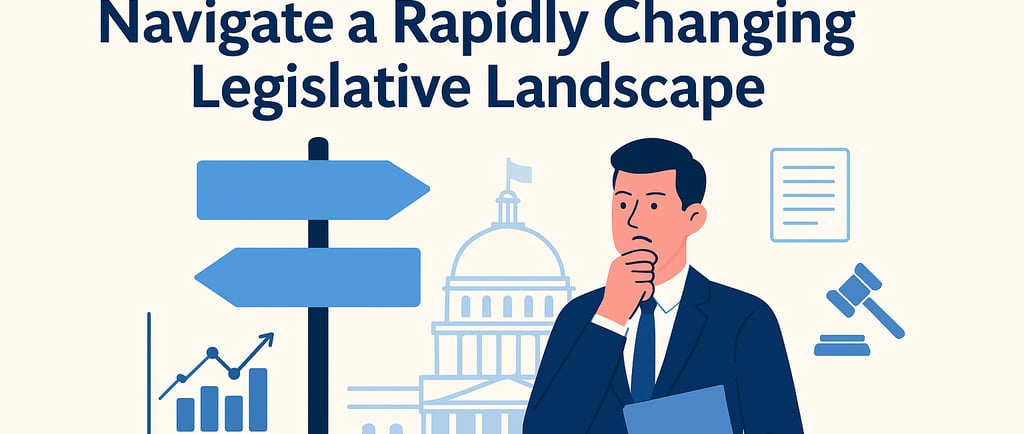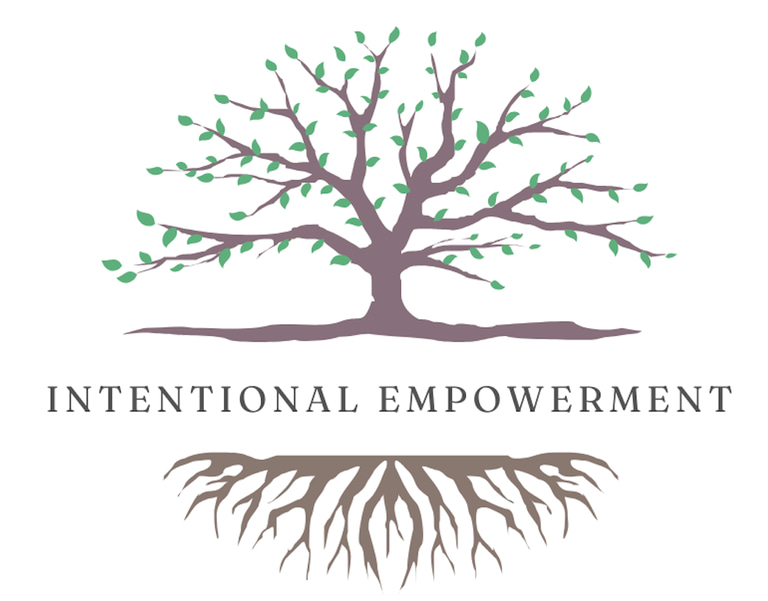How Small Businesses Can Navigate a Rapidly Changing Legislative Landscape
Businesses don't exist in a bubble. Our world creates obstacles and opportunities that need to be leveraged to thrive in our global economy.
WORK SMARTERSTRONG FOUNDATIONTARIFFSBUSINESS ETHICS
Jess Sumerak
3 min read


In today’s unpredictable economy, small businesses are more vulnerable than ever to shifting legislation and global events. Whether it’s new tax laws, employment regulations, or international trade policies, the impact of these changes can be immediate and lasting. A timely example? The ongoing trade war between the United States and China. Tariffs on imported goods have disrupted supply chains, increased operating costs, and forced many small business owners to re-evaluate their entire sourcing strategies overnight.
If your livelihood is tied to your business, this level of risk is more than just a line on a budget sheet—it’s personal. That’s why building a resilient and adaptable business foundation is no longer a luxury—it’s a necessity.
1. Build on Bedrock: Strengthen Your Business Foundation
Start with the basics. A solid foundation includes:
Legal structure: Make sure your business entity (LLC, S-corp, etc.) provides both liability protection and tax efficiency.
Cash reserves: Have at least 3–6 months of expenses saved. If legislation disrupts your income stream, you’ll need time to pivot.
Contracts and compliance: Regularly review your contracts and employment documents. New regulations may require updates to stay compliant.
A strong foundation gives you the agility to shift direction when laws—or markets—suddenly change.
2. Diversify Your Income: Multiple Streams for Maximum Stability
No single revenue stream is safe forever. To guard against volatility:
Offer both short-term and long-term contracts: Long-term contracts provide predictable revenue, while short-term contracts offer flexibility and quick cash flow.
Mix digital and hands-on services: For example, a fitness coach might offer both in-person training and a paid online video subscription. If one stream falters due to legislation, the other can buffer your income.
Create scalable products: Think e-books, courses, consulting packages, templates, or passive income tools that don’t require constant time investment.
Diversification helps reduce your dependency on any single customer, product, or regulation.
3. Avoid Risky Collateral: Protect Your Personal Assets
In uncertain times, it’s tempting to leverage everything for growth—but caution is key:
Don’t use your primary residence as collateral. If your business fails due to a legislative or market shift, you could lose both your income and your home.
Use separate business credit and assets: Keep personal and business finances distinct to protect your household.
Take calculated risks, but never bet the farm—especially when the rules of the game can change overnight.
4. Stay Informed and Adapt Quickly
Ignorance is expensive. Stay ahead of the curve:
Track legislation that affects your industry: Subscribe to industry newsletters, set Google Alerts, or join a local business coalition that monitors state and federal laws.
Be proactive, not reactive: If you hear about a proposed law that could affect your pricing, sourcing, or hiring, start planning alternatives immediately.
Many businesses were caught off guard by supply chain disruptions from tariffs. Those who had alternate vendors or locally sourced options in place survived. Others didn’t.
5. Invest in Relationships, Not Just Systems
Your network is one of your greatest assets:
Partner with others in your industry to share information and resources.
Build trust with clients and customers so they’ll stick with you through transitions.
Hire a trusted advisor or consultant to help you interpret changes and plan accordingly.
Automation, AI, and efficiency tools are great, but human relationships will carry you through crises and change.
Final Thoughts
Small businesses are the backbone of the economy, but they are also among the first to feel the tremors of legislative upheaval. By laying a strong foundation, diversifying income streams, protecting your assets, staying informed, and investing in human connection, you’ll not only survive the storm, but you’ll build something that can weather any climate.
At Intentional Empowerment, LLC, we ground our consulting strategies in principles from Organizational Interdependence and Open Systems Theory, recognizing that no business operates in a vacuum. We help small businesses understand their place within broader networks—clients, suppliers, regulators, and the socio-economic environment—and adapt proactively to legislative and market changes. By viewing businesses as open systems that must exchange resources and respond to external stimuli, we enable leaders to pivot with confidence, protect against disruptions, and sustain growth through mutually beneficial relationships. This systems-based approach is supported by decades of research, including Katz and Kahn’s seminal work The Social Psychology of Organizations (1978), which emphasizes the importance of environmental awareness and adaptability for organizational survival. Through this lens, we don’t just offer advice, we help you build a responsive, resilient business ecosystem. You are never too small to start building a strong foundation for the future.
Intentional Empowerment, LLC
Empowering people-first, Research based, business strategy & employee well-being
© 2025 Intentional Empowerment. All rights reserved.
Follow us on social
Have a question? We're here to help.
📧 jessicasumerak@gmail.com
📍 Twinsburg, OH (Serving clients nationwide)
